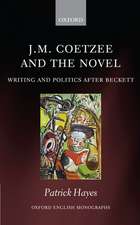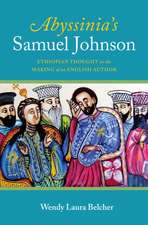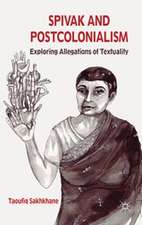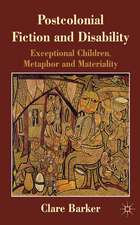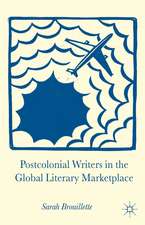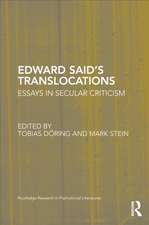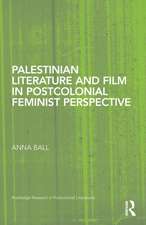The Postcolonial Gramsci: Routledge Research in Postcolonial Literatures
Editat de Neelam Srivastava, Baidik Bhattacharyaen Limba Engleză Hardback – 21 dec 2011
| Toate formatele și edițiile | Preț | Express |
|---|---|---|
| Paperback (1) | 486.38 lei 6-8 săpt. | |
| Taylor & Francis – 8 noi 2013 | 486.38 lei 6-8 săpt. | |
| Hardback (1) | 1104.48 lei 6-8 săpt. | |
| Taylor & Francis – 21 dec 2011 | 1104.48 lei 6-8 săpt. |
Din seria Routledge Research in Postcolonial Literatures
-
 Preț: 311.41 lei
Preț: 311.41 lei - 9%
 Preț: 1003.52 lei
Preț: 1003.52 lei -
 Preț: 311.41 lei
Preț: 311.41 lei -
 Preț: 393.05 lei
Preț: 393.05 lei -
 Preț: 280.99 lei
Preț: 280.99 lei -
 Preț: 311.43 lei
Preț: 311.43 lei - 18%
 Preț: 1062.98 lei
Preț: 1062.98 lei -
 Preț: 344.32 lei
Preț: 344.32 lei - 18%
 Preț: 1112.65 lei
Preț: 1112.65 lei - 18%
 Preț: 1110.77 lei
Preț: 1110.77 lei - 26%
 Preț: 820.71 lei
Preț: 820.71 lei - 18%
 Preț: 1059.14 lei
Preț: 1059.14 lei - 18%
 Preț: 1005.39 lei
Preț: 1005.39 lei -
 Preț: 441.74 lei
Preț: 441.74 lei - 18%
 Preț: 1054.89 lei
Preț: 1054.89 lei - 18%
 Preț: 1112.34 lei
Preț: 1112.34 lei - 18%
 Preț: 1058.43 lei
Preț: 1058.43 lei -
 Preț: 462.81 lei
Preț: 462.81 lei -
 Preț: 463.14 lei
Preț: 463.14 lei - 18%
 Preț: 1055.32 lei
Preț: 1055.32 lei -
 Preț: 443.65 lei
Preț: 443.65 lei - 25%
 Preț: 260.33 lei
Preț: 260.33 lei - 18%
 Preț: 1054.71 lei
Preț: 1054.71 lei - 18%
 Preț: 1004.34 lei
Preț: 1004.34 lei - 18%
 Preț: 1060.87 lei
Preț: 1060.87 lei -
 Preț: 389.66 lei
Preț: 389.66 lei -
 Preț: 482.94 lei
Preț: 482.94 lei - 18%
 Preț: 1114.30 lei
Preț: 1114.30 lei - 18%
 Preț: 1000.30 lei
Preț: 1000.30 lei - 18%
 Preț: 1057.09 lei
Preț: 1057.09 lei -
 Preț: 485.99 lei
Preț: 485.99 lei -
 Preț: 485.24 lei
Preț: 485.24 lei - 12%
 Preț: 339.94 lei
Preț: 339.94 lei - 18%
 Preț: 1053.16 lei
Preț: 1053.16 lei - 18%
 Preț: 1051.60 lei
Preț: 1051.60 lei -
 Preț: 384.86 lei
Preț: 384.86 lei - 18%
 Preț: 1006.77 lei
Preț: 1006.77 lei - 18%
 Preț: 1111.51 lei
Preț: 1111.51 lei - 18%
 Preț: 969.71 lei
Preț: 969.71 lei - 18%
 Preț: 1007.48 lei
Preț: 1007.48 lei
Preț: 1104.48 lei
Preț vechi: 1346.93 lei
-18% Nou
Puncte Express: 1657
Preț estimativ în valută:
211.35€ • 221.11$ • 175.56£
211.35€ • 221.11$ • 175.56£
Carte tipărită la comandă
Livrare economică 03-17 aprilie
Preluare comenzi: 021 569.72.76
Specificații
ISBN-13: 9780415874816
ISBN-10: 0415874815
Pagini: 278
Ilustrații: 4 b/w images
Dimensiuni: 152 x 229 x 15 mm
Greutate: 0.32 kg
Ediția:1
Editura: Taylor & Francis
Colecția Routledge
Seria Routledge Research in Postcolonial Literatures
Locul publicării:Oxford, United Kingdom
ISBN-10: 0415874815
Pagini: 278
Ilustrații: 4 b/w images
Dimensiuni: 152 x 229 x 15 mm
Greutate: 0.32 kg
Ediția:1
Editura: Taylor & Francis
Colecția Routledge
Seria Routledge Research in Postcolonial Literatures
Locul publicării:Oxford, United Kingdom
Public țintă
Postgraduate and UndergraduateCuprins
Introduction: The Postcolonial Gramsci Neelam Srivastava and Baidik Bhattacharya I. Gramsci and Postcolonial Studies 1. Il Gramsci meridionale Robert JC Young 2. Provincializing the Italian Reading of Gramsci Paolo Capuzzo and Sandro Mezzadra 3. The Travels of the Organic Intellectual: The Black Colonized Intellectual in George Padmore and Frantz Fanon Neelam Srivastava 4. The Secular Alliance: Gramsci, Said and the Postcolonial Question Baidik Bhattacharya II. Gramsci and the Global Present 5. The ‘Unseen Order’: Religion, Secularism and Hegemony Iain Chambers 6. Gramsci in the Twenty-first Century Partha Chatterjee 7. Entering the World from an Oblique Angle: On Jia Zhangke as an Organic Intellectual Pheng Cheah 8. Questioning Intellectuals: Reading Caste with Gramsci in Two Indian Literary Texts Rajeswari Sunder Rajan 9. Mariátegui and Gramsci in ‘Latin’ América: Between Revolution and Decoloniality Walter D. Mignolo III. Epilogue Interview with Gayatri Chakravorty Spivak
Recenzii
"The collection of essays in The Postcolonial Gramsci set out to argue a new theoretical framework underpinned by a Gramscian point of view in dealing with postcolonial studies from the Marxist and post-Marxist points of view. The contributors to the book situate the cultural and political logic of Gramsci’s notions of liberation and ideology and of the role of intellectuals and the working of hegemonic political economy within postcolonial studies in order to reconceptualise the nature of class, power and the conditions of existence in colonial and modern societies in Africa, China and India." -- Shelley Walia, Frontline
Descriere
The importance of Antonio Gramsci’s work for postcolonial studies can hardly be exaggerated, and in this volume, contributors situate Gramsci's work in the vast and complex oeuvre of postcolonial studies. Specifically, this book endeavors to reassess the impact on postcolonial studies of the central role assigned by Gramsci to culture and literature in the formation of a truly revolutionary idea of the national—a notion that has profoundly shaped the thinking of both Frantz Fanon and Edward Said. Gramsci, as Iain Chambers has argued, has been instrumental in helping scholars rethink their understanding of historical, political, and cultural struggle by substituting the relationship between tradition and modernity with that of subaltern versus hegemonic parts of the world. Combining theoretical reflections and re-interpretations of Gramsci, the scholars in this collection present comparative geo-cultural perspectives on the meaning of the subaltern, passive revolution, hegemony, and the concept of national-popular culture in order to chart out a political map of the postcolonial through the central focus on Gramsci.

